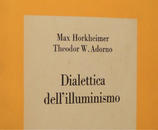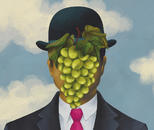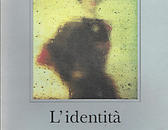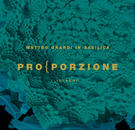Freedom and colorful beads
Despite this sad interlude in history, our team has recently completed many fun and rewarding projects together. Although we found ourselves isolated for long periods of time, we immersed ourselves in the profession we love in what can be called "an aristocratic form of detachment from the world.” We are happy to present a few of our recent projects (From purity to well-being; Packaging for Controcorrente salmon; The one, unrepeatable; Joga; Summit!; Pro-portion; La ligne de vigne; Suavia attire), as well as a rambling newsletter, full of nonsense. In fact you will have to read all the way to the end in order to arrive at the point…
Since we were children, we have all been drilled with the importance of at least eight consecutive hours of sleep. And, you know: if someone convinces us that a certain action will make us sick, we will inevitably feel bad, regardless of that action. Over time this misconstrued concept or prejudice of sleep has become difficult to battle. In fact, a night spent alone requires us to face our own “existence as such compared to time as such” - a comparison that almost always translates into boredom. Thus, in the collective imagination, the eight straight hours of sleep per night ended up offering a comfortable interlude of passive life capable of warding off suffering, as well as limiting boredom: the act of starting the day to feel "normal.”
That said, this prejudice is easily dismantled even without consulting great scientists, although Umberto Veronesi years ago already considered a couple of hours of sleep a night to be enough if truly restorative. To combat the problem at its root, simple objective data would be enough for everyone to see: eight hours sleep verges on lethargy causing dullness rather than energy, demonstrated by everyone looking in the mirror in the morning (without prejudice) and having the clearest of confirmations.
Probably (and here instead we begin to reason by inference) the pounding campaign mounted in defense of lethargy has a precise instrumental reason, in the always unbalanced confrontation between subjects and their masters, being much easier to manage an average late and dazed humanity, rather than an alert and responsive one. And it’s interesting to note how a disproportionate number of powerful people have always boasted, and still boast, of sleeping little or nothing, while advocating, albeit not directly, that others must sleep more. Detail that should just arouse some suspicion.
As for the other problem that accompanies insomnia, namely boredom, it would be enough to develop a hoppy or passion, preferably nothing too noisy, to be practiced at night in solitude. Thus, by crossing data and limitations, we believe we can affirm, with a fair approximation to the truth, that the best antidote to lethargy is precisely the reading of one’s favorite old books in paperback, not only because it is able to neutralize perilous hours of sleep in excess, but also because it is capable of introducing us to the discovery of worlds, of multiplying experiences, adventures, knowledge, original ideas, without moving from home, safe, keeping us alert, upright and reactive, despite everything, without getting bored and without boring anyone.
Insomniacs, as a rule, after having spent enough time as a reader becomes a "re-reader." It’s fatal to return cyclically to the various crime sites, especially when several have been committed and always get away with it. Well, I was recently surprised by two nocturnal re-readings: a big book read for the first time more than thirty years ago and a smaller book reread after about a decade.
The first, the big book, is the famous "Dialectic of Enlightenment" by Horkheimer and Adorno, tirelessly cited by the great Mephistophelic master of the Quirino Principe, almost always with the enjoyable corollary of the recitation in memory of the flagrant opening words: “Enlightenment, understood in the widest sense as the advance of thought, has always aimed at liberating human beings from fear and installing them as masters. Yet the wholly enlightened earth is radiant with triumphant calamity.” A book that at the time seemed very fascinating but irremediably dated, as well as a little confused and destructive. And which now seems to us to be punctual as a promissory note in deciphering the very essence of our age, indeed of our days - beyond some practical examples a little out of fashion due to the technological revolution that has occurred in the meantime.
In hindsight we understand why reading this book the first time could have seemed obsolete and instead the second timeit appears perfectly in keeping with the times. Having been written in the 1940s under the coercion of a dictatorship, and read at the end of the Eighties in the full splendor of constitutional democracies, freedoms, rights and social protections - milieu in which we have had the good fortune to grow and scorn ourselves. It therefore becomes normal that today it seems like a different book due, in particular, to the continuous stance of the authors regarding progress seen as a dramatic alienation of man from nature and his fellowmen, to the extent that it is no longer possible: relationships between man and nature and man with his fellow man that are not characterized by domination, and which envisage "the manipulation of man by man, which can be found both in totalitarianisms and in the equally totalitarian mass society.” Just as the criticism of the cultural industry ("capable of assigning the tragic a precise place in the routine"), which shines with memorable moments like this one, has taken on a different color, at least in my eyes: “The demeanor to which everyone he is forced to try again and again his moral belonging to this society, makes us think of the boys who, in the rite of admission to the tribe, move in a circle with a stupid smile, under the blows of the priest. Life in late capitalism is a permanent initiation rite. Everyone must show that he identifies without residue with the power by which he is beaten. This is the basis of syncope in jazz, which derides stumbling and at the same time raises it up to the standard.
With our fogged glasses, in the sense of a dialectic of the Enlightenment I can’t help but notice how the cult of individualism (creative, exuberant, irritable, but in a certain sense also responsible, although led to scoff at the power, of any kind of power) that we experienced in our youth, has in the meantime been deceived. Today it seems that human beings act by imitating each other much more than in the past, that their attitudes are more easily calculated, and not only due to technological advances, that their opinions are more easily manipulated. Today human beings seem to be less a species of individuals and more a part of the masses. We ask ourselves how much education has to do with this trend, how much the excessive power, even psychological, of the web could have counted, and then how much (I think a lot) has influenced the perennial planetary state of emergency, which arose in 2001 and never went away, always with new, dramatic, motivations (and the relative fear induced by the mainstream, which limited itself to uncritically sanctify the tragic descent from above by introducing it as the absolute protagonist of our daily routine.)
The second is a much shorter book, entitled "Identity," written by Milan Kundera in the late Nineties. It’s a short story about the misunderstandings between two lovers in the concise style of Kundera’s last book penned in French. The female lead is a successful advertiser, while the male lead is precarious, slightly maladjusted and four years her minor. While rereading this book a third character emerged who had been completely forgotten: Leroy, owner of the advertising agency, an old Trotskyist capable of adopting a logic as sharp as a scalpel for every thorny topic, who knows Marx, psychoanalysis, contemporary poetry, and who he often remembers how a current of everyday poetry stood out in the literature of the 1920s in Germany. According to Leroy, advertising realizes that poetic program a posteriori, transforming simple everyday objects into poetry. “Thanks to advertising, everyday life started singing,” says Leroy. Singing what? - asks a colleague. “The embellished squalor. And we are the ones who make up squalor.” It’s an astonishing vision, which caused me to smile bitterly.
But this isn’t what I wanted to talk about. Reconnecting with the Dialectic of Enlightenment after having spent the last two years lived under a restrictive, unhappy and homologating regime, I was struck by a passage by Leroy himself, who like few others seemed determined to illustrate the true essence of a quite problematic word.
"Freedom? By experiencing their own misery, everyone can be happy or unhappy. Freedom consists precisely in this choice. Everyone is free to dissolve their individuality in the cauldron of the multitude feeling either a sense of defeat or a sense of euphoria. As for us, we have chosen euphoria.”
07/04/2022 Filippo Maglione








